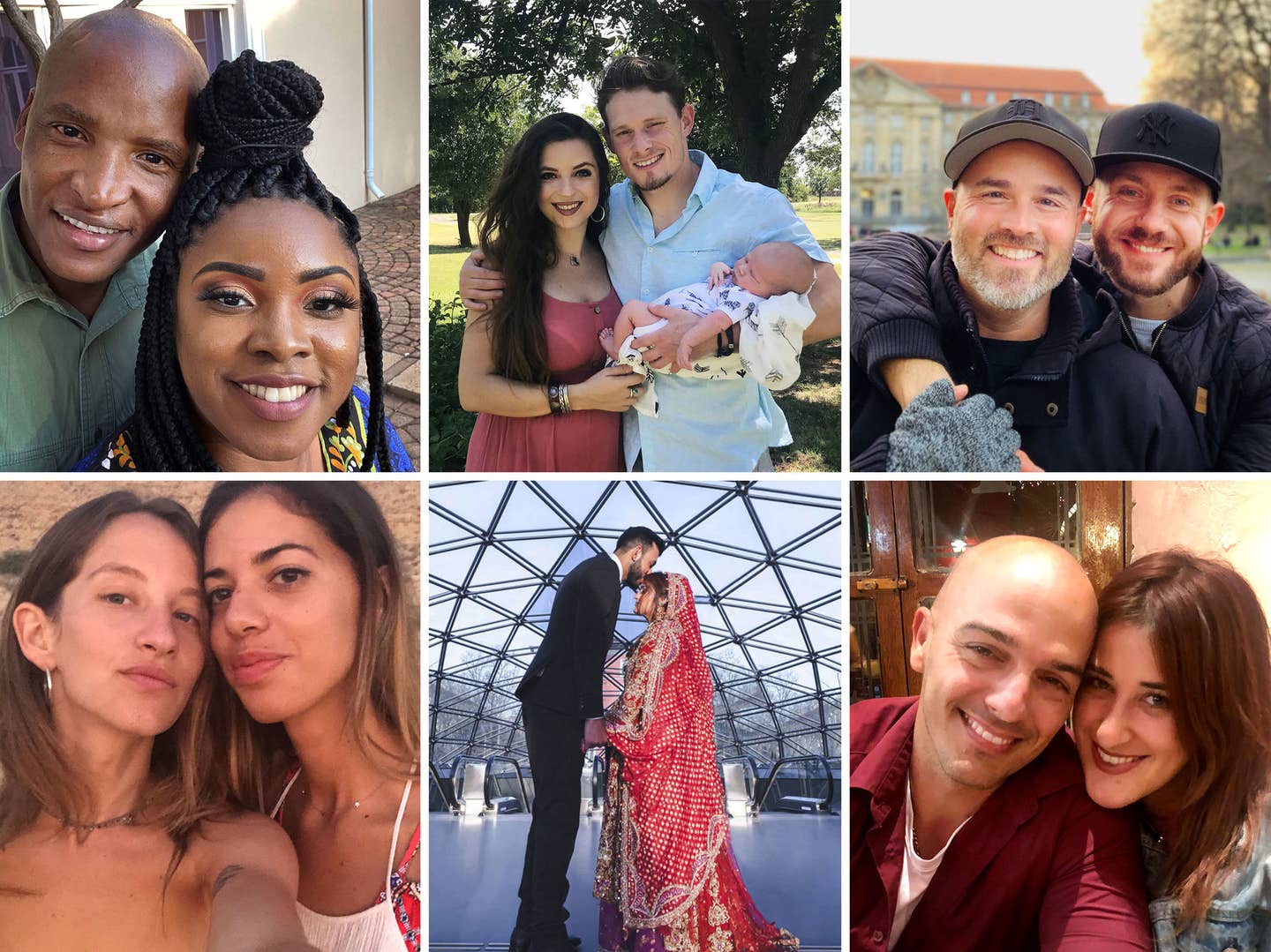Can Love Conquer Travel Bans? Couples Divided By Pandemic Are Rallying To Reunite
They became one of thousands of couples separated by coronavirus-related travel restrictions. Many are unmarried.

[Aug. 4, 2020: NPR]
Rezan al-Ibrahim understands separation. A Web developer who fled the war in Syria and now has asylum in the Netherlands, he's in a long-distance marriage with his wife, Aysha Shedbalkar, an Indian American math teacher, because of the Trump administration's ban on Syrians.
"She had taken this year off work to stay with me in Amsterdam," he says. "Then the pandemic hit."
They became one of thousands of couples separated by coronavirus-related travel restrictions. Many are unmarried. In several countries, partners without formal residency, who often visit as tourists, have been largely barred from entering during the pandemic.
The United States restricts travel from places including Brazil, China and much of Europe. The European Union has allowed visitors from a dozen nations, but most countries like the U.S. — where the coronavirus is still surging — remain blocked.
Reuniting is especially difficult for same-sex couples. "It's easier for some countries to just classify us as friends and not let us in," says Robert Garrison, 42, a high school French teacher in Los Angeles. He usually spends every school break in France with his French partner of four years but now is not allowed into the country.
These couples are now organizing on social media to push governments to let them reunite, tweeting with the hashtags #LoveIsNotTourism and #LoveIsEssential. One Facebook group, Love Is Not Tourism, has more than 15,000 members. Maggie Foster, an American who co-founded another Facebook group, Couples Separated by Travel Bans, which has more than 8,000 members, says activists have lost faith in the U.S. government.
"Our representatives don't respond to our requests and if they do, they just say 'sorry, this all rests with Donald Trump,' " Foster says.
Some European lawmakers are paying attention. Countries including Austria, the Czech Republic and the Netherlands now allow non-EU partners to enter on "sweetheart visas."
NPR spoke to some of the couples around the world who are coping with separation during the pandemic.
Like these kind of stories? Get The Brighter Side of News' newsletter.
JOHANNES MAHELE AND JORESA BLOUNT
"We will find some way to be together."
Johannes Mahele (left) is a mechanical engineer and entrepreneur in Sasolburg, South Africa. Joresa Blount is the founder of fashion and beauty delivery startup GoFlyy, in Los Angeles.
They met in Russia last year at a tech conference and exchanged numbers. A few weeks later, she told him she was heading to Tbilisi, Georgia, for another conference. "And he said, 'How about if I join you there?' I was floored. The dating scene in LA is bleak. It's hard to get a guy to get on the 405 [highway] to meet you," Blount says. "And this guy wants to get on a plane to meet me in another country. I was like, what is happening?" According to Mahele, it was love at first sight. "Every single person in my life knows her," he says. "My family, my friends, my co-workers, my neighbors. I even talk to my dog about her." They have visited each other every two months since they met and video chat several times a day. Mahele video chats with her when he's out with his friends, at a family dinner or distributing food parcels to vulnerable South Africans. He applied for a K-1 (fiancé) visa to join her in the U.S., where they planned to marry in December. The wedding is postponed. Meanwhile, Mahele is building a house for the two of them in South Africa, where they plan to hold a second wedding. "What keeps me going is that I know we're not alone in this," Blount says, "and that we will find some way to be together. I don't know how. I don't know when. But it's going to happen."
TODD ALSUP AND SEBASTIAN PINDEL
"I’m thankful we’re living in an era when FaceTime exists."
Todd Alsup (left) is a singer-songwriter in New York. Sebastian Pindel is an interior designer in Berlin.
They met last year at a club in Berlin and have talked every day since, flying back and forth between the U.S. and Germany every few weeks. They have met each other's parents. They spent Christmas with Alsup's family and promised to reunite in March. Pandemic travel restrictions have kept them apart for months. "By being forced to be separated, we have realized how very committed we are to this relationship," Alsup says. "I'm thankful we're living [in] an era when FaceTime exists because at least we can see each other every day," Pindel says. "I don't think I could cope with just a regular cellphone." They are now trying to make plans to meet in a third country that lets in Americans and Germans and is relatively inexpensive for a long-term stay. "Could it be Mexico? Rwanda? I don't care where, as long as I can hold him," Pindel says. Alsup hopes they can reunite in September, assuming Denmark lets him in to play two concerts there..... Read More



